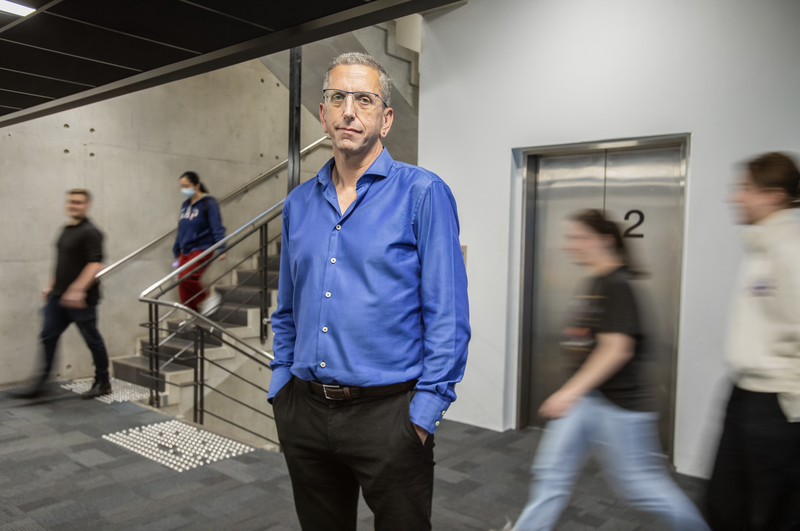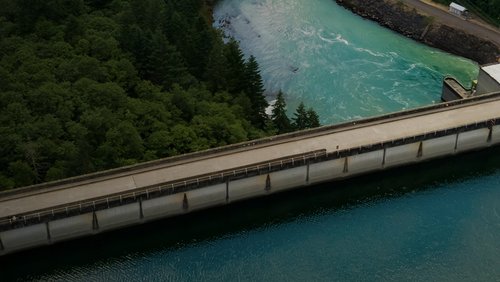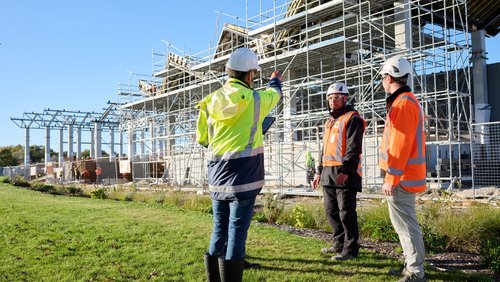1 Aug 2022
Geoff Chase is a Distinguished Professor of Engineering at the University of Canterbury where he has carried out his research for 22 years. He delves into his career highlights and what he's most proud of.
What is your role at the University of Canterbury?
Currently, I am a Distinguished Professor of Engineering in mechanical engineering and the Centre for Bioengineering. I also represent NZ, UC and UC Engineering nationally and internationally as part of Science Challenges, at the RSNZ as their Technology, Applied Sciences and Engineering Convenor, at CAETS (Council of Academies of Engineering and Technological Sciences), and so on.
You have supervised many student projects during your time at Canterbury University. In your opinion, what attributes make up a good project team?
There are only two main factors to project team success, motivation/energy/desire to achieve the objective, and an engaged mentor or support team. The project team brings the first, and that is all that is necessary. Motivation and desire, however you wish to phrase them, overcomes most obstacles, and mentoring merely facilitates that process to its (hopefully) most efficient path. In my opinion, there are no secret recipes or groupings of people types, there is motivation and ensuring those individuals are targeted.
For the record or whatever it might be worth, I have supervised projects for 94 current and completed PhD students, 42 Masters of Engineering students, 180+ final year project students, 110+ visiting 5-6 month French and German Masters students, and 90+ summer students. It’s always the same motivation/desire and an engaged support team, … All the rest follows.
What is your dream project to supervise?
Already doing it, the development and implementation of digital twins (or ‘virtual patients’ or ‘virtual buildings’) from modeling to data to use in saving lives and cost. It’s been a 20+ year consistent program to bring modeling, data, and real world impact together to benefit people.
How do you explain the Washington Accord to your students?
Bluntly, I don’t. I do tell them the truth behind it, that their degree is comparable (if not better) to any 4-5 year degree in North America and Europe, based on my own experience and the fact we (UC and our programme) are regularly reviewed for quality to ensure we remain comparable. Exciting jobs and opportunity are what interest them, the Washington Accord provides a strong measure supporting those outcomes.
Complete the sentence. Today’s engineering student needs to be ….
… flexible, self-critical, and, above all, ambitious. I was told all the same things 36+ years ago at Case Western Reserve University. I didn’t believe it then, but I do now – which is perhaps the real lesson here (for those reading). The future is (since then in 1985-86) increasingly fast-paced, digital, and ever changing based on where engineering has taken us (as a society), and, critically, all these factors show no sign of slowing or changing.
Flexibility to be able to change as the world does, self-criticality to ensure whether it is your or your ideas or what you do that needs to change, and ambition to embrace that change and make a real difference to those around you wherever you live.
If a student is having problems understanding an engineering concept, what do you suggest they do?
Ask someone. If there's a Kiwi (engineering) character deficit that is almost universal, it's the unwillingness to publicly ask questions or publicly reason about any concepts or decision for fear of appearing poorly (or so I am told). Questions are the root of understanding, the unasked question is yet another piece of information you don’t have to better understand what’s going on.
If you could meet any engineer in the world, who would it be and why?
None, I meet absolutely huge numbers of engineers (and scientists), I would much rather meet ‘everyday’ (or great) artists or musicians or writers or …. I’m a breadth over depth kind of person most likely.
Tell us about three of your career highlights?
- Graduating 80+ PhD students, 44 Masters students (and see list above), doing well by students is the central reason for an engineer to be at a university, everything flows through them (or should do), and it’s what (I believe) the NZ taxpayer is really paying me to focus on – making great young engineers!
- The 65 ‘Significant Awards and Honours’ my students have won for work they did with me (at all levels from undergraduate to PhD), and the 24 Best Paper awards for all the reasons above in #1.
3a. Implementing blood glucose (sugar) control in ICUs and NICUs in Christchurch and around the world – we save lives and costs every day, and have done so for 16 years (and counting)
3b. Seeing devices I helped pioneer appear in some of the first flagship buildings of the Christchurch rebuild – resilient cities and communities are just as important as a resilient immune system and it’s better to prepare now for the difficult future than to be despondent about it later (in both cases!).
I suspect if a bus hits me tomorrow, I will be remembered for 3a, 3b and various major (and minor) prizes and fellowships. But, it’s #1 and #2 that matter. Admittedly my opinion.
Tell us about one memorable conference you attended to share your research findings and why was the conference so memorable?
Conferences are never particularly memorable, even when you (may be/are) the “star of the show”. What is memorable is showing young students that their research not only stands well amongst international competition, but stands out. Ambition matters, and it starts with self-confidence, both of which NZ (engineering) needs more of, in my opinion at least.
Why are you a member of Engineering New Zealand?
I'm a Distinguished Fellow (formerly plain Fellow) of Engineering New Zealand, and I'm a member because peak bodies matter. They set the tone and quality of much of what goes on (at least broadly) in their domain, and can serve to link, in the case of engineering, government and policy with the real outcomes and commercial impact.

Geoff Chase




